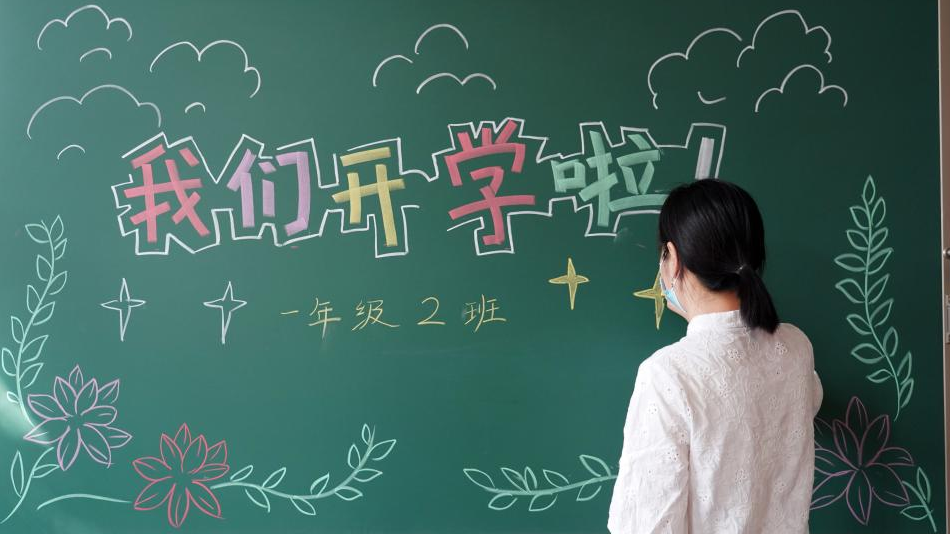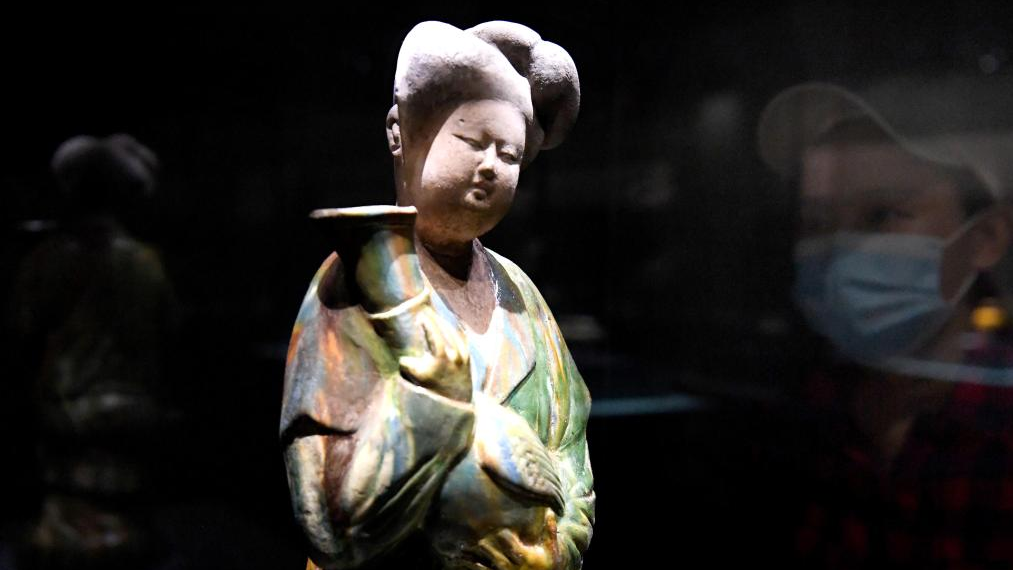Quadruplets deep in mountains epitomize China's gender equality
NANCHANG, Sept. 1 (Xinhua) -- Deep in the mountains and surrounded by rice paddies in Chongyi County, east China's Jiangxi Province, 35-year-old mother Deng Dinglan was busy preparing schoolbags, stationery and the like for her four 12-year-old daughters, who were about to start the sixth grade in the 2022 autumn semester.
The Shangbao rice terraces behind the family's residence have been cultivated for thousands of years. In 2018, the Food and Agriculture Organization of the United Nations recognized the Shangbao terraces as a globally important agricultural heritage site.
Four girls in one family going to school at the same time was once impossible for the local villagers.
Back then, Deng herself only received primary school education. Deng's family was so poor during her childhood that they could only afford her younger brother's education, while Deng and her sister had to drop out of school and work in the crop fields before they were old enough to work in neighboring Guangdong Province.
When Deng and her younger sister were old enough to marry, they went back to the mountains and had their own families.
Because of grinding poverty, girls in the deep mountains often had to assume the responsibility of supporting their families prematurely, a fate passed down from generation to generation, Deng said.
Twelve years ago, Deng, whose family was expecting a boy, gave birth to four girls. The girls, who were born about 40 days earlier than expected and weighed an average of 1.48 kg, had to be monitored inside incubators.
According to medical research statistics, the odds of multiple identical births conceived naturally are about one in 15 million, and even lower for babies of the same sex.
For Deng Dinglan, whose per capita annual income was less than 2,300 yuan (about 334 U.S. dollars) at that time, the quadruplets were both a big surprise and a financial burden.
Before the birth of the quadruplets, Deng and her husband eked out a living by working in the fields. The harvest of the family's 5-mu (about 3,333 square meters) rice field could only ensure the family enough food to eat. During the off-season, the couple had to work in toy and clothing factories in south China's Guangdong Province to earn money.
"The baby formula they consumed alone cost nearly 1,000 yuan a month," said Deng, adding that when one child got sick, the other three were likely to be affected, and thus a visit to the hospital could cost more than 4,000 yuan.
Not long after the quadruplets were born, China implemented targeted poverty alleviation policies across the country. Deng's family was listed as a registered poverty-stricken household. Her husband, Wu Nianyou, was hired by the local government as a forest ranger and Deng as a housekeeper, helping increase the family's annual income sharply by nearly 10,000 yuan.
Deng was very concerned about her four daughters' education, which she saw as the best way for them to find an alternative to the remote mountains.
The mother never bought any toys for the quadruplets until they were six years old, but she kept taking a family photo every two years as a habit. Over the past 12 years, six family photos have clearly recorded the four children's educational progress.
In 2016, Deng took their third family photo, in which the quadruplets, dressed in pink, are smiling in front of their kindergarten. During China's fight against absolute poverty, the local government subsidized students from registered poor families from enrollment to graduation. The four girls were among those who benefited from the policy.
The fifth family photo, captured in 2020, shows the quadruplets returning home with their pink schoolbags. Because they look so alike, teachers and classmates often call them by wrong names, but Deng can accurately identify them by their voices.
In 2021, after her family lifted themselves out of poverty, Deng put the certificate of poverty alleviation efforts on her wall, beside the awards her children received at school. Deng also built a new house with the help of the local government, with separate rooms and desks for each daughter.
Official data shows that the net enrollment rate of primary school-age girls has maintained 99.9 percent or above for six consecutive years since 2015 and China's gender gap in compulsory education has been basically eliminated.
"Their whole life is definitely different from mine. I'm sure that they will study further and go to college after graduating from primary school," Deng said.
"As long as they study hard, they can receive higher education and get themselves out of the deep mountains," Deng added.
Photos
Related Stories
- IOC hails Beijing 2022 Olympics as most gender-balanced Winter Games ever
- Gender ratio of China's population falls slightly to 105.07: official data
- UN report shows still long way to go for gender equality
- MTN and ZTE extend a lifeline to survivors of gender-based violence
- Men outnumber women by 32.66 million on Chinese mainland
- Report: Gender pay gap widening in China
- Gender prediction tests intercepted by Chinese bureau
- UN names Wonder Woman as ambassador for gender equality amid protests
- Free teacher training program for men labeled gender discrimination
- All gender toilets promoted in Beijing
Copyright © 2022 People's Daily Online. All Rights Reserved.









